of graduate employers say relevant experience is essential to getting a job with them

- University
- Undergraduate
- Courses
- International Hospitality and Tourism Management BA (Hons) / FdA
Choose Award
Duration
4 years with placement
Placement
48 week placement (compulsory)
Entry
September, February
Fees
View fees
Choose Award
Duration
3 years with placement
UCAS Code
N921
Placement
48 week placement (compulsory)
Entry
September, February
Fees
View fees

According to Statista (2023), in 2023, the global hospitality market reached over 4.7 trillion U.S. dollars and is forecasted to grow to around 5.5 trillion U.S. dollars in 2024

According to UNWTO data (2024), international tourism is rapidly recovering after the pandemic, with international tourism receipts reaching 1.6 trillion US dollars in 2024, contributing directly and indirectly to an estimated 348 million jobs in 2024
Our International Hospitality and Tourism Management BA (Hons) degree, accredited by the Institute of Hospitality, prepares you for leadership in two interconnected global industries. With the hospitality and tourism sectors experiencing continuous growth worldwide, professionals with expertise in both fields are highly sought after. Our hospitality and tourism management course combines business acumen with specialised industry knowledge, equipping you with the skills to excel in international hotels, resorts, cruise lines, event venues and tourism organisations across diverse cultural contexts.
With the hospitality, tourism and events industries increasingly focusing on international visitors and technological developments, there is huge demand for managers who understand these sectors and how to tailor services for global visitors. Our hospitality and tourism course will equip you with specialist knowledge and a versatile skill set that will accelerate your career path in the hospitality and tourism industry. Studying at a recognised Institute of Travel and Tourism (ITT) Centre of Excellence, you will also have further opportunities to network and liaise with industry, as well as the chance to hone your hospitality management skills right on campus in our award-winning restaurant facilities.
To help you put your learning into practice in the real world, you will have the chance to spend a year on a paid work placement, with exciting opportunities in the UK and around the globe. We are one of a few universities in the UK to have an established partnership agreement with Disney, giving our students the opportunity to work at Walt Disney World Resort (Orlando, Florida) on their Academic Exchange Programme. You will also have the opportunity to travel and go on a variety of residential visits both in the UK and abroad, while our range of optional modules will enable you to personalise and specialise your studies to match your interests and career aims.
£5k Cost of Living Allowance
At University College Birmingham, we believe the cost of living shouldn’t hold you back from achieving your goals. That’s why we’re providing UK full-time undergraduate students starting in February or September 2026 with £5,000 each to support expenses like food, bills, and transport - completely free, with no need to pay it back.

Pay early and save up to £4,500
International students applying for our BA/BSc undergraduate degrees, who meet all our deposit deadlines, can qualify for Early Action Scholarships of £4,500 or £3,500, depending on your course. Simply meet the payment deadlines and we'll do the rest - no application needed. International students can also apply for merit scholarships, worth up to the full amount of the tuition fee.
Why should I choose International Hospitality and Tourism Management BA (Hons) / FdA?
- INTERNATIONAL RESIDENTIAL TRIP - Take on hospitality and tourism projects in the UK and overseas*, with essential trip costs covered by us – past destinations have included Montenegro, Alicante, Marrakesh, Malta, Majorca, Barcelona, Belfast (* subject to visa requirements)
- INDUSTRY APPROVED – Gain professional recognition with a degree accredited by the Institute of Hospitality, and study at an Institute of Travel and Tourism Centre of Excellence, attending employability conferences and working on live industry projects with international hospitality and tourism organisations
- INDUSTRY INFORMED TEACHING – Develop specialist knowledge and a versatile skill set with industry-informed teaching delivered by industry specialists with hotel management platforms Opera and HOTS
- WORK PLACEMENT – Boost your career prospects and first-hand industry experience with a paid 48-week placement aligned with your subject area- we are one of 14 universities with an approved placement partnership with Disney (*subject to placement application)
- PERSONALISE AND SPECIALISE – Personalise your studies by selecting specialist optional modules from tourism, aviation, hospitality and events in your second and final years
- TOP LEVELS OF STUDENT SATISFACTION – More than 90% of students answered positively on questions relating to quality of teaching, support and development, representing a 2.5% increase on last year (National Student Survey 2025)
Our facilities
At University College Birmingham, students benefit from state-of-the-art hospitality training facilities, including our award-winning restaurant that supports hands-on learning across various service styles. You’ll also gain experience with industry-standard software like Opera Cloud PMS, used by leading hotel groups such as Marriott and IHG, and HOTS, a business simulation tool that challenges you to make strategic hotel management decisions.
Learning takes place in modern lecture theatres, group spaces, and through our online platform Canvas, where you’ll engage with digital tools, quizzes, discussion boards, and curated content. You’ll also access top tourism industry resources such as UNWTO, WTTC, Deloitte Travel Outlook, Mintel, Statista, and more. Depending on your modules, you may also explore our Aviation and Tourism Suite. .
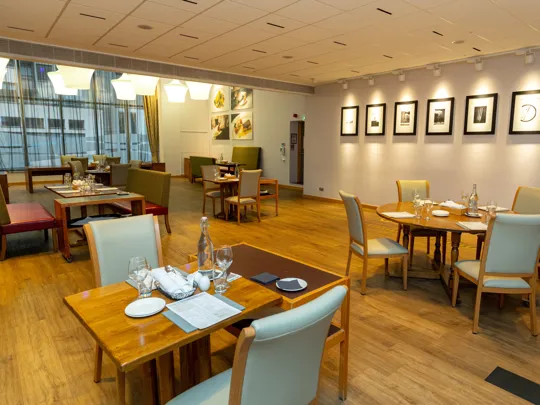
Open to the public, our AA Rosette Highly Commended restaurant on campus – Restaurant at Birmingham College of Food – will arm you with hands-on skills, serving a variety of styles and developing knowledge of a range of cuisines

Our training restaurant and industry-standard kitchens provide you with a unique behind-the-scenes view of the hospitality and catering industry during your studies
Course breakdown
Students on the FdA have the option of progressing onto the final year upon completion of the foundation degree.
- Year 1
- Year 2
- Year 2/3
- Year 4
Core Modules
Global Hospitality Environment
In this module you will uncover the key players, sectors, and dynamic events that shape the global hospitality industry. Learn how external factors like geopolitics, economic shifts, and emerging markets impact hospitality, while gaining insight into the legal frameworks that regulate the industry. Discover the social, cultural, and economic significance of hospitality, and explore how digital innovations and sustainability initiatives are transforming the industry. By the end of the module, you will have the knowledge and skills to navigate the complexities of global hospitality and its future opportunities.
Hospitality Service Excellence
Through a blend of theory and hands-on experience, you will explore customer service excellence, quality control, food safety, and sustainability—key elements that define outstanding food and beverage management. You will gain practical skills in table service, cocktail making, and digital tools for inventory and supply chain management, while developing the professional attributes needed to thrive in a fast-paced, customer-driven environment. This module not only enhances your technical expertise but also sharpens your problem-solving, adaptability, and leadership skills, ensuring you stand out in the industry. Whether you aspire to manage fine dining establishments, hotels, or innovative food service businesses, this course will equip you with the knowledge, confidence, and real-world experience to succeed.
Personal Branding
You will be introduced to the concept of future employability readiness in the context of your programme of study. You will acquire the knowledge and skills needed to develop your personal brand as a professional or entrepreneur of the future. This will include building an external profile and being introduced to a range of experiences related to your programme of study, all designed to prepare you for successful placement and work experience opportunities.
Digital Content Creation
In this module you will explore principles, tactics, and tools for the effective curation of digital content that resonates with the modern consumer. You will learn how to develop compelling narratives, multimedia content, and digital marketing tactics to engage diverse audiences. With a focus on practical application, this module will help you to develop the essential skills needed to design innovative content campaigns that reflect evolving industry trends and sustainability goals.
Tourism Destination Success
This module will provide you with a comprehensive overview of the key factors needed for the success of tourism destinations. You will delve into topics such as the development of compelling products and experiences, connectivity, active local community involvement, and effective government support. You will reflect on the challenges destinations face, including managing overtourism, adopting sustainable practices, and maintaining competitiveness over time. You will develop valuable employability skills focusing on analysing data trends, conducting destination audits, and identifying critical challenges and best practices within the tourism sector.
Rooms Division Management
Rooms Division Management is your gateway to understanding the behind-the-scenes functions that make hotels run smoothly. This module dives into the roles of front office and housekeeping teams, showing how they work together to create seamless guest experiences. You will learn the essentials of managing guest bookings and stays, maintaining room standards and customer satisfaction. The module explores the use of contemporary digital technologies to enhance guest experience, and includes practical sessions where students gain proficiency in one of the world's leading property management systems.
Core Modules
People Management and Development
This module will help you to gain the essential skills to effectively manage and develop a diverse hospitality workforce. You will explore key people management concepts, including workforce planning, recruitment, and talent development, while understanding the legal frameworks governing employment in the hospitality industry. You will learn how to design and deliver an effective training session. With a focus on building inclusive, high-performing teams, you will be prepared to navigate the challenges of hospitality management and contribute to organisational success.
Operational Financial Management
In this module, you will develop critical ability to interpret and analyse key financial and management data to influence departmental and organisational profitability. You will develop the techniques of effective pricing, cost management and budgeting to positively impact business’s operations. You will gain knowledge of the application of performance indicators, commercial awareness and learn how to monitor and evaluate financial performance.
Marketing Consultancy Project
This practical module is designed to provide you with real-world experience by working directly with a live Industry client from the Aviation, Tourism or Hospitality Industry acting as a marketing consultant. The context of the project will be to develop and implement a targeted marketing campaign focusing on showcasing a new product / service or new customer experience following the brief from the client. This project will enhance your employability skills and can be added to your CV as a live consultancy project enhancing your ability to apply for jobs.
Business Innovation
You will be introduced to the principles and practices of research within the context of a business in the hospitality, tourism or aviation industry, providing you with the necessary skills to design and conduct research that solves business problems and enhances opportunities. You will explore key stages of the research process, from defining SMART aims and objectives, completing background research into key theories and thinking, and explaining research processes, to analysing findings and developing actionable recommendations. With a strong focus on innovation, you will encourage students to apply practical research principles to support decision-making and drive business success and innovation.
Sustainable Hospitality Management
In this module, you will move beyond traditional sustainability models to develop cutting-edge skills that position you as a next-generation hospitality professional. By exploring innovative approaches to ecosystem conservation, community engagement, circular economy principles, and regenerative design, you will gain the practical expertise that global businesses are desperately seeking. Whether you are driven by environmental passion, social impact, or a desire to create meaningful change, this module offers a unique opportunity to transform hospitality from an extractive industry to a powerful force for positive global transformation.
Plus one option from:
Gastronomy and Food Innovation
Global Gastronomy and Food Innovation will provide you with a comprehensive understanding of gastronomy, food cultures, and sustainable food management, giving you the knowledge, skills, and attributes required for a career in the evolving food and hospitality industries. You will gain insight into the cultural significance of food, the role of gastronomy in tourism, and the impact of global challenges such as food security and climate change. You will develop practical skills in sensory food evaluation, food sustainability strategies, and innovative culinary tourism experiences, while exploring cutting-edge trends like alternative proteins, AI in gastronomy, and experiential dining.
Digital Communication for Business
In today’s fast-paced digital world, effective communication is a cornerstone of success in the tourism, aviation and hospitality industries. Digital Communication for Business will develop the essential skills to thrive in the tourism, aviation, and hospitality industries. You will harness technology to enhance operations, strengthen customer engagement, and drive business growth through hands-on experience with industry-standard tools, AI, and data communication. The module explores ethical and cultural considerations in a globally connected digital world while providing practical learning through case studies, workshops, and industry insights. By solving real-world challenges and developing AI-driven strategies, you will gain the confidence to navigate digital platforms and lead effective, ethical communication in the modern workplace.
Niche Tourism
Niche Tourism delves into the growing importance of niche tourism markets, from adventure and wellness to cultural and religious tourism. You will examine the drivers shaping these unique sectors, explore the challenges they face, and evaluate strategies for sustainable growth. Through engaging case studies and practical research, you will gain the skills to critically assess niche tourism businesses and propose innovative or evidence-based solutions that meet the needs of modern travellers. This module is perfect for those eager to shape the future of niche tourism within destinations.
Event Tourism and the Visitor Economy
Within the module Event Tourism and the Visitor Economy, you will explore the role of medium to large-scale events in shaping a destination's visitor economy, examining how destinations bid for and host major events, considering operational planning, legacy, and stakeholder engagement. You will gain insights into the economic, social, and political impacts of events, along with the challenges and opportunities they present. The module covers key topics such as destination competition, infrastructure development, visitor management, sustainability, and inclusivity in event planning. Through real-world case studies and strategic analysis, you will develop the skills needed to evaluate event impact, create sustainable growth strategies, and ensure long-term benefits for host destinations.
Cargo and Logistics Management
Step into the world of global commerce with Cargo and Logistics Management. The module is designed to provide you with the knowledge and skills needed to excel in the dynamic field of cargo and logistics. From understanding the impact of globalisation on supply chains to mastering the intricacies of intermodal transportation, this module will develop your skills in planning supply chain logistics, embedding sustainability and using digital technologies.
Aviation Security Operations
Aviation Security Operations provides an in-depth exploration of aviation security threats and the strategies to address them. You will gain a comprehensive understanding of the various types of threats facing the aviation industry, including terrorism, cyber-attacks, and insider threats. Through case studies and practical exercises, you will learn to assess risks, develop security protocols, and implement effective solutions to safeguard passengers, crew, and aircraft. Emphasis will be placed on regulatory frameworks, technological advancements, and crisis management techniques to ensure a holistic approach to aviation security.
Work Placement
Work Placement (compulsory)
You will gain valuable work experience on a 48-week work placement for BA students and FdA students. This is an exciting opportunity to put what you have learned into practice, broaden your experience and demonstrate your abilities to potential employers.
Core Modules
Strategic Hospitality Revenue Management
This module will help you to integrate revenue management and profit enhancement strategies to improve both short-term and long-term business performance in a competitive environment. Through an interactive hospitality management simulation, you will apply these principles in a practical setting. The simulation will enhance your data analytical skills and help you critically assess the impact of your decisions on revenue generation, cost control, planning, and profit maximisation of a business.
Digital Transformation and Futures
In this module you will explore the profound impact of digital technologies on the tourism and hospitality industries. You will gain a comprehensive understanding of how digital transformation, artificial intelligence and smart technologies are transforming business models, urban living and driving innovation. The focus will be on providing you with the knowledge and skills to navigate and leverage digital changes effectively, ensuring the sustainability and competitiveness of tourism and hospitality providers, while also addressing the ethical challenges that digital transformation brings.
Strategic People Leadership
Strategic People Leadership will empower you with the essential leadership skills to thrive in today’s dynamic workplace. You will explore contemporary leadership theories, people management principles, and the key traits of successful leaders, including strategic thinking, emotional intelligence, and adaptability. You will learn how to manage and motivate high-performance teams within the tourism, hospitality or aviation industries, develop a positive workplace culture, and drive innovation through equality, diversity and inclusion. Gain practical insights into change management, ethical leadership, and corporate social responsibility while developing the confidence to lead with integrity, resilience, and vision.
Enterprise and Innovation Showcase
This module provides you with the opportunity to demonstrate your capabilities in researching, planning and delivering an industry or community-related project relevant to events, aviation, hospitality or tourism businesses or organisations. You will research a new business product, service or system and develop it into an idea that you can deliver in a professional report and presentation. This project is designed to develop the graduate attributes of professionalism, critical enquiry and problem solving, enterprise, creativity, and innovation to support you in your career as a manager/entrepreneur of the future.
Plus two options from:
Optimising Operational Efficiency
Optimising Operational Efficiency will provide you with the skills to analyse and enhance operational processes within a business to maximise efficiency and performance. You will explore the principles of process optimisation, examining how activities consume time and resources and how a strategic process redesign can improve overall business effectiveness. Through practical applications, you will develop the ability to identify inefficiencies, streamline operations, and implement solutions that drive productivity and resource efficiency.
Strategic International Marketing
Strategic International Marketing will help you to develop the skills and knowledge to navigate the complexities of global markets. As businesses expand into diverse and unfamiliar environments, this module focuses on identifying and overcoming obstacles to international market entry. You will explore practical marketing strategies, cultural considerations, and ethical implications, developing adaptable approaches for global success. Through real-world case studies and scenario analysis, you’ll gain insights into international business dynamics and decision-making processes, preparing you to capitalise on opportunities in emerging markets
International Tourism Destination Management
Step into the role of a consultant for a global destination management organisation, tasked with futureproofing the long-term sustainability of a tourism destination. You will audit its current performance and develop strategic, inclusive visitor management and marketing plans. You will develop essential skills in governance, stakeholder collaboration, and sustainable tourism development, integrating best practices from UNWTO and UNESCO. You explore destination branding, digital marketing, and visitor experience management while tackling challenges like overtourism and climate targets. With a focus on creativity and strategic thinking, you will align your recommendations with societal goals such as community regeneration, SDGs, and a carbon-neutral future, preparing you for leadership roles in the evolving tourism industry.
Crisis and Risk Management
Explore the challenges facing the tourism, aviation and hospitality industries, from natural disasters to reputational crises, and learn how to assess risks, develop strategic response plans, and manage stakeholders effectively. Master crisis communication across media channels, craft compelling digital PR campaigns, and safeguard brand reputation during times of uncertainty. With a focus on recovery strategies and futureproofing, this module will help you develop the skills necessary to build resilience and drive sustainable growth in an ever-changing global landscape. The module’s crisis simulation-based assessment will develop your critical thinking, decision-making, and communication abilities—preparing you for leadership roles in airlines, airports, tourism organisations, hospitality providers and government agencies.
Aviation Crash Investigations
Aviation Crash Investigations will support you in exploring the critical role of human factors in aviation safety and crash investigations. You will examine human information processing, decision-making, and cognitive limitations that impact flight operations. Key topics include human error classification, situational awareness, workload management, and the influence of stress and fatigue on pilot performance. The module also covers major human factor theories, flight deck design, and aeronautical decision-making. By the end of the module, you will develop a comprehensive understanding of how human, environmental, and systemic factors contribute to aviation incidents and the strategies used to prevent them.
Aircraft Maintenance Systems Management
The focus of this module is to provide an in-depth exploration of aircraft maintenance systems. It develops expertise in aviation maintenance, aircraft life cycle management, and MRO operations within regulatory frameworks. It integrates technical, regulatory, and strategic skills to optimise efficiency, address industry trends, and promote sustainability. Emphasising problem-solving and innovation, it prepares learners for careers in aviation maintenance management, MRO enterprises and compliance oversight.
The modules listed above for this course are regularly reviewed to ensure they are up to date and informed by industry as well as the latest teaching methods. On occasion, we may need to make unexpected changes to modules – if this occurs, we will contact all offer holders as soon as possible.
Disclaimer for Selecting Option Modules Outside of Degree Programme
Students who choose to study an optional module outside the core structure of their specific degree programme do so at their own discretion and are fully responsible for developing the subject knowledge and skills necessary to complete and pass the module successfully.
It is the student's responsibility to make an informed decision before selecting such modules. Students are strongly advised to thoroughly review the relevant Option Module Handbook and any supporting materials, including recorded briefings, to understand the academic expectations, content, and assessment methods.
By enrolling in a module outside their degree programme, students acknowledge and accept that they may need to undertake additional independent learning to meet the required academic standards.
Entry requirements
International Hospitality and Tourism Management BA (Hons)
A-levels: An A-level grade profile of CDD.
T-levels: A T-level graded Pass with a core component of grade C.
BTEC: A BTEC grade profile of MMP. This can be achieved from either an Extended Diploma or a combination of smaller BTEC qualifications.
Tariff: Other Level 3 qualifications are accepted for entry. A minimum of 80 UCAS Tariff points will be required.
Access to Higher Education Diploma: 80 UCAS Tariff points including a minimum of 15 Level 3 credits at Distinction.
International Hospitality and Tourism Management FdA
A-levels: An A-level grade profile of DD.
T-levels: A T-level graded Pass with a core component profile less than C.
BTEC: A BTEC grade profile of PP. This can be achieved from either an Extended Diploma or a combination of smaller BTEC qualifications.
Apprenticeship: Achieve an advanced apprenticeship (Level 3).
Tariff: Other Level 3 qualifications are accepted for entry. A minimum of 32 UCAS Tariff points will be required.
Access to Higher Education Diploma: 32 UCAS Tariff points.
Non-tariff: Non-UCAS Tariff-based Level 3 qualifications are also considered for entry. Please complete our enquiry form here to check your eligibility.
Work-based: We also give equal consideration to applicants who are currently in work and wish to apply to University College Birmingham. To apply, you must have a minimum of 3 years’ relevant work experience, demonstrating management or supervisory duties. Your application must also include a reference from your line manager supporting your entry to higher education. For further details, please contact Admissions.
International students
For academic and English entry requirements for EU and international students, please visit the Country Specific Information page.
Please note: As an International Student, when choosing optional placement, a visa extension may be required.
Key information
Teaching and assessment
Teaching takes place through weekly lectures and seminars across two 12-week semesters. Each semester, you will study three 20-credit modules, supported by our weekly Skills for Success skills module and personal tutorials to enhance your academic and career development.
Assessment is industry-informed and is designed to reflect the wide range of roles and skills in the aviation sector. Our assessment aims to prepare you for employment by developing specialist knowledge and practical skills needed by industry, giving you a competitive advantage in the graduate job market.
You will be assessed through a variety of methods, such as-
• Industry live projects
• Online simulations
• Digital presentations
• Digital content creation
• Student debates and discussions
• Business pitches
• Academic posters and infographics
• Industry standard toolkits
Every assessment is designed to bring you closer to the career you want, helping you graduate not just with knowledge, but with the skills, experience and edge to make a real impact.
Throughout your journey, you will be supported by personal tutors and module leaders who tailor their guidance to your individual needs—ensuring you always feel confident, capable, and ready to succeed.
Our teaching and assessment is underpinned by our Learning and Teaching Strategy 2025-2030.
Timetable
We understand that you need to balance study with work, so wherever possible your lessons will be timetabled into 2-3 days a week for full-time and one day a week for part-time study.
Tuition fees for home students
If you are a home student enrolling on a bachelor's or foundation degree course at University College Birmingham, the 2025/2026 academic year tuition fee for full-time study is £9,535. For part-time study, the fee is £4,767.50.
Tuition fees for international students
If you are an international student (or have been fee assessed as an international fee payer) and are enrolling on a full-time [Band 1] bachelor's degree course in 2025/2026, the fee for the academic year will be £16,000. If you complete a placement year, there will be an administration fee of £500 for a full year or £250 for a half-year placement.
Free £5,000 cost of living allowance
We are committed to supporting students who may be facing financial challenges due to the rise of living costs. If you are a full-time undergraduate student starting your course in February or September 2026, with home fee status and plan to pay your fees using a student loan, you’ll be eligible a £5,000* Cost of Living Allowance.
Further information and frequently asked questions can be found here: £5,000 Cost of Living Allowance
*If you are studying a two-year foundation degree, you will receive £2,000 in instalments each year of your course. If you decide you'd like to top up to a full BA or BSc (Hons) at the end of your foundation degree, you will also be entitled to the £1,000 in the third year.
Kick-Start Scheme
As a new student studying this course full-time, you will receive £300 per year through our Kick-Start Scheme (UK students only, eligibility criteria applies). This scheme will support your studies and future career by contributing to course-related materials, uniform or selected items on campus. You may also qualify for an additional £500 per year.
Find out more about the Kick-Start Scheme here.
Latest updates
Join the conversation and check out the latest updates from our Department of Hospitality and Tourism.
| UCB Hospitality | |
| UCB Tourism |
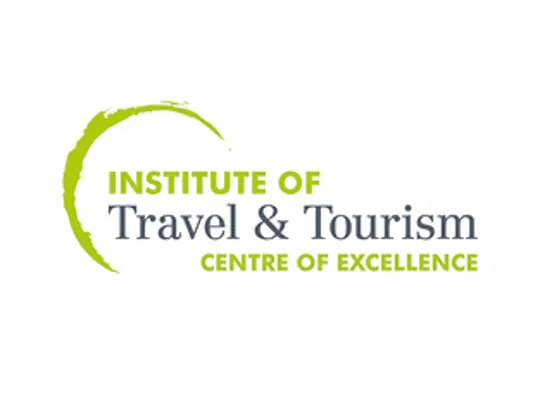
University College Birmingham is a recognised Institute of Travel and Tourism Centre of Excellence.
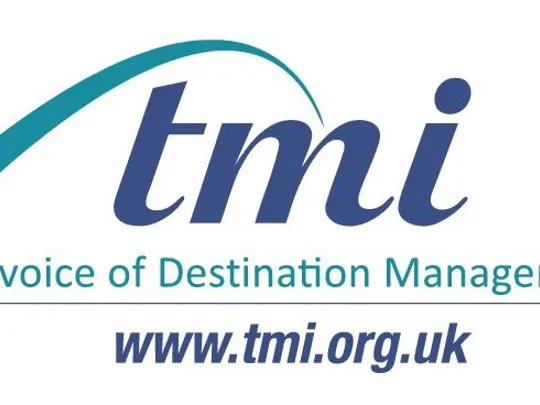
The programme is recognised by the Tourism Management Institute (TMI), the national organisation for anyone working in tourism destination management in the UK. Each year, a student is nominated as student ambassador to represent TMI at the university.
Accreditations, endorsements and partnerships
University College Birmingham works with a wide range of organisations to ensure you receive the best possible training and qualifications recognised by industry.
Work placements
Work placements are vital for gaining real-life experience and for building your confidence and skills before you finish your course – and they may even lead to a job when you graduate. Our Hired team can help find the ideal placement for you.
Our FdA and BA International Hospitality and Tourism Management courses both feature an optional 48-week paid work placement, during which you will not incur any tuition fees.
*placements are subject to placement application*
Work alongside experts in your sector
A snapshot of some of the employers we have worked with:
- Wequassett (Cape Cod, Massachusetts)
- The Savoy (London)
- The Peninsula (Hong Kong)
- The Sea Pines Resort (South Carolina)
- Westin Hilton Head Island Resort and Spa (South Carolina)
- Ritz Carlton (Naples, Florida and Colorado)
- Dunboyne Castle Hotel and Spa (Ireland)
- Ashford Castle (Ireland)
- The Greenwich Country Club (Connecticut)
- Andrew Brownsword Hotels (whole collection)
- Fairmont St Andrews (Scotland)
- Disneyland Resorts and Hotels
- TUI
- Celtic Manor Hotel and Resort
- Warner Holiday Group
- Exclusive Hotels
- Red Carnation Hotels
- The Grand Hotel
- Park Regis
- Belfry Hotel and Resort
- Crowne Plaza

Designed in conjunction with industry, shaped by student feedback and with employability at the heart of everything we do, our International Hospitality and Tourism Management programme will transform your prospects, accelerate your career path and secure your future in the hospitality and tourism industry.
Our aim is to deliver contemporary, cutting-edge teaching and learning based on an employability-informed curriculum that is tailored to your individual needs, guiding you into graduate level positions.
Richard Behan Head of Department – Hospitality and Tourism
Career opportunities
The example roles and salaries below are intended as a guide only.
Theme park manager
Average Salary: £31,000
Hotel manager (small hotel or deputy of larger hotel)
£27,500 - £31,000
Destination marketing executive
Average salary: £28,000 - £35,000
Restaurant and catering manager
Average salary: £26,000 - £40,000
Event coordinator / manager
Average salary: £25,000-£35,000
Food and beverage supervisor/ coordinator
Average salary: £25,000 - £30,000
Want to take your studies to the next level? Completing the BA (Hons) degree will enable you to move onto our postgraduate courses such as Hospitality with Tourism Management MSc/PGDip (Pathway A), International Hospitality Management MSc/PGDip or International Tourism Management MSc/PGDip.
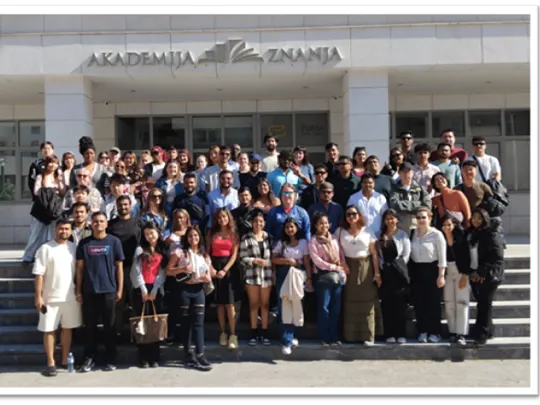
Montenegro Field Trip Offers UCB Students a Sustainable Tourism Experience
University College Birmingham students from various disciplines explored sustainable tourism practices in Montenegro, engaging in activities like visiting the UNESCO-listed town of Kotor and Europe's largest vineyard, Plantaže, to apply their academic knowledge in real-world settings.
How students on this course rate us for...
Assessment and feedback
100%
Learning opportunities
97.5%
Academic support
94.9%
*National Student Survey (NSS) 2025 - BA/BSc (Hons) figures
Meet your lecturers

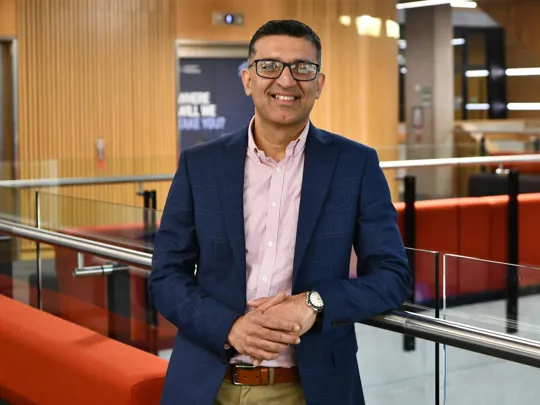

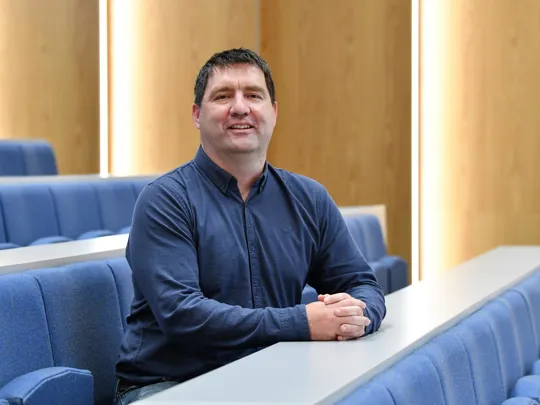
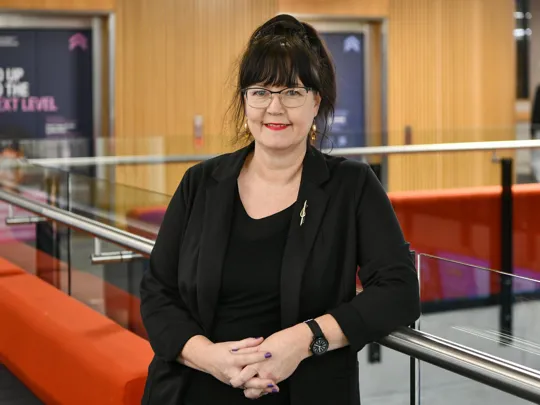


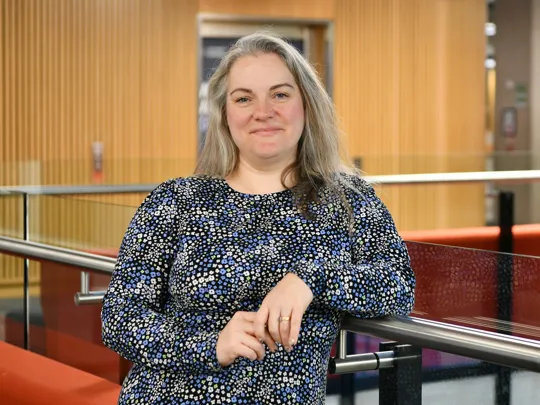


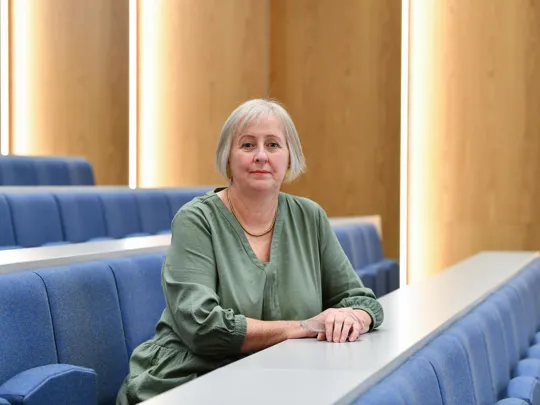

Other courses you may like
Aviation and Airport Management BA (Hons) / FdA
Take off on an exciting international career by studying our Aviation and Airport Management course. Gain in-depth knowledge of how the aviation industry functions, with visits to national and international airports as well as a year-long placement to boost your experience.
International Tourism Management BA (Hons) Top-up
‘Top up’ your existing qualifications for a full BA (Hons) degree on our one-year International Tourism Management course. Enhance your knowledge through a range of specialist topics and gain unique industry insight studying at an ITT Centre of Excellence.
